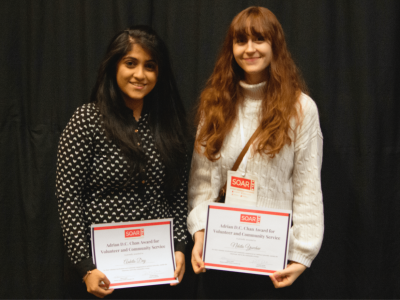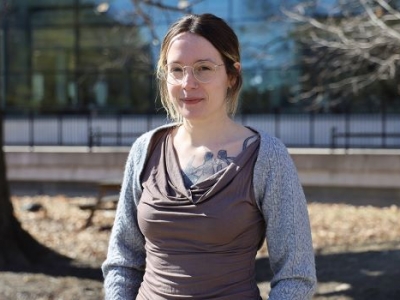Reaching financial goals can be tough, especially when you are prone to impulse buys.
 Mariya Davydenko, a PhD student in Psychology, is researching self-control strategies to help people reach their financial goals. She is particularly interested in whether people use self-control strategies in their daily life and whether these strategies are effective tools for pursuing financial goals.
Mariya Davydenko, a PhD student in Psychology, is researching self-control strategies to help people reach their financial goals. She is particularly interested in whether people use self-control strategies in their daily life and whether these strategies are effective tools for pursuing financial goals.
“What first sparked my interest in applied and decision-making research was the behavioural insights movement, explained Davydenko. “After reading “Nudge” by Richard Thaler and Cass Sunstein, I became fascinated with how concepts in social psychology were being applied in the real world to create meaningful and practical change.”
While research on self-control is typically done by social psychologists and primarily behavioural economists do research on financial goals, Davydenko aims to bridge this gap. She wants to conduct research that is important theoretically for researchers and practically for the general public.
Davydenko is using a combination of an analysis of self-control literature, a sample from the general public describing their self-control strategies, and an analysis of the types of self-control strategies recommended online. From these three perspectives, Davydenko will know what self-control strategies are being used and will create a comprehensive list of strategies to disseminate to the general public.
“To assess how effective these strategies are, we will conduct a longitudinal study to see how self-control strategies impact one’s spending behaviour over the course of a month,” said Davydenko.
Some of the self-control strategies for spending and saving goals that Davydenko is looking at are; only paying with cash for purchases, budgeting, waiting a day before purchasing an item, thinking about your future self, thinking about your financial goals, and automatic saving deposits.
“My focus is on differentiating between strategies that you can use in anticipation of a tempting situation (e.g., not bringing your credit cards with you when you go shopping) or strategies that you can use once you are in the tempting situation (e.g., thinking about if this is an item you want or need),” shared Davydenko.
Davydenko is also part of the Life Tools Lab, a lab that is interested in studying the psychology of day-to-day decisions, thoughts, and actions.
“Working in the Life Tools Lab is amazing!,” emphasized Davydenko. “I did my MA research with Dr. Peetz and stayed to do my PhD because of the lab environment. We are typically a small lab, but this allows the students to have more one on one time with Dr. Peetz. I think my favourite part of working in this lab is that…we are encouraged to come up with our own ideas and to work on every part of the project. Hard work and dedication are key in the Life Tools Lab.”
Dr Johanna Peetz from the Department of Psychology has been supervising Davydenko throughout this research.
“Dr. Peetz is an excellent advisor and is very supportive of her students,” expressed Davydenko. “We have an excellent, productive working relationship. Dr. Peetz has taught me how to design high quality and interesting experiments, how to report my findings in a clear way, and how to think critically about research findings. I wouldn’t be where I am without her guidance and advice.”
Davydenko wants to dedicate more effort to tell the public about her research findings. “We will develop videos about effective self-control strategies for financial goals and will share these videos publicly to hopefully impact people’s everyday financial goals,” promised Davydenko. “Following my PhD, I hope to work outside of academia and to conduct practical, applied research in government or industry.”
—The above story was written by Taia Goguen-Garner.
Thursday, April 16, 2020 in Grad Student Research, News
Share: Twitter, Facebook




